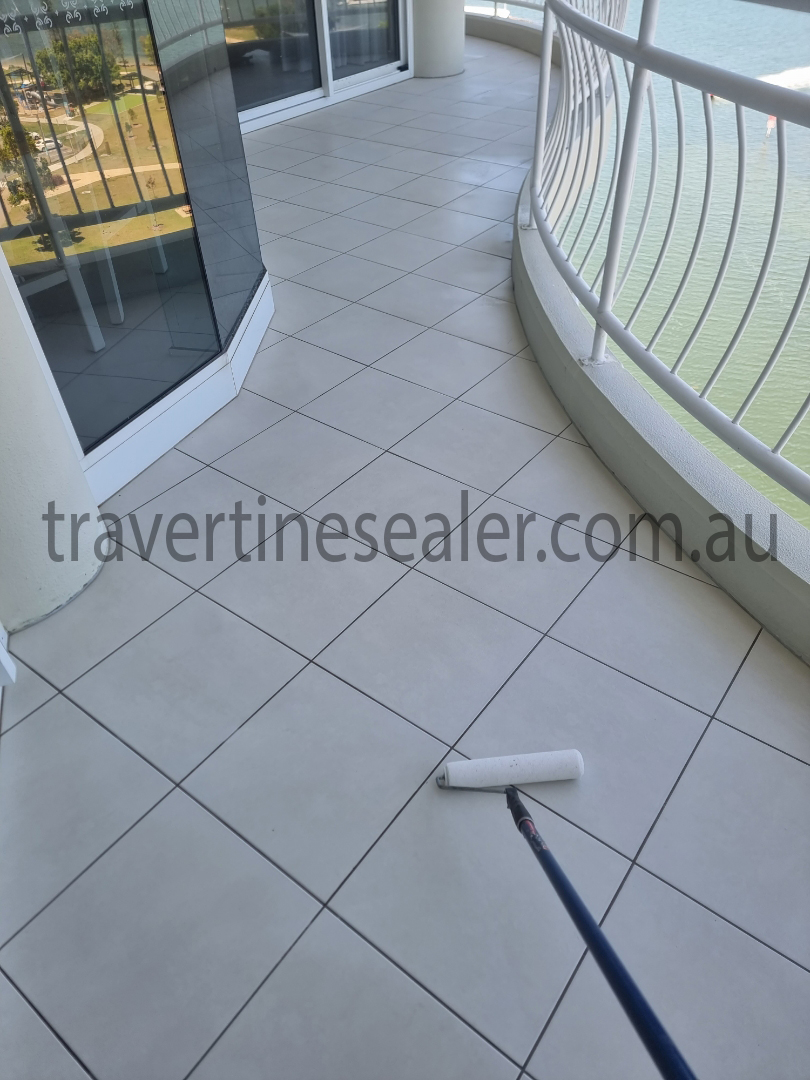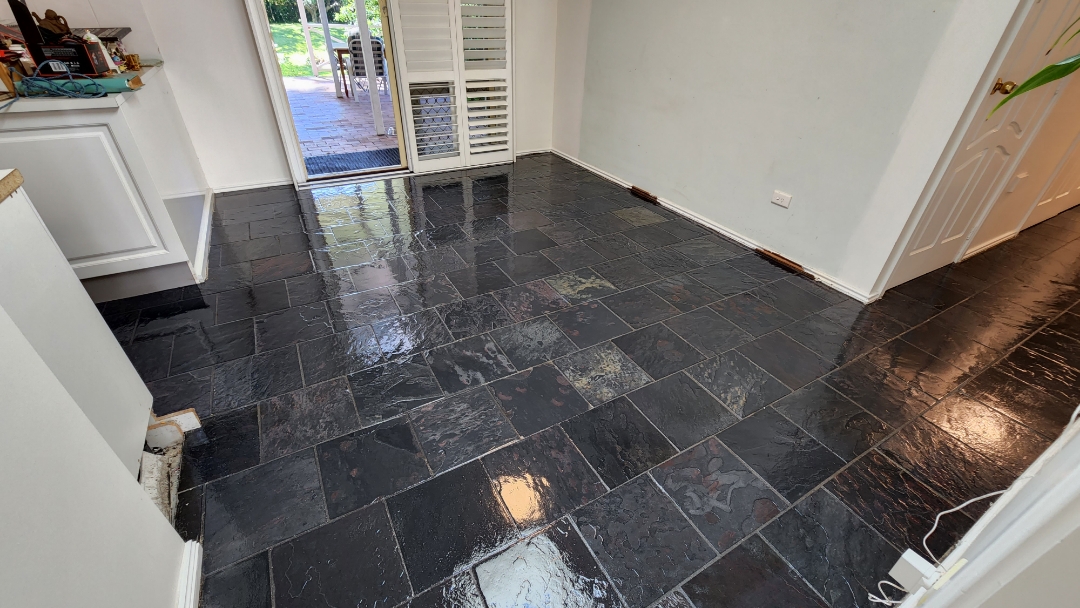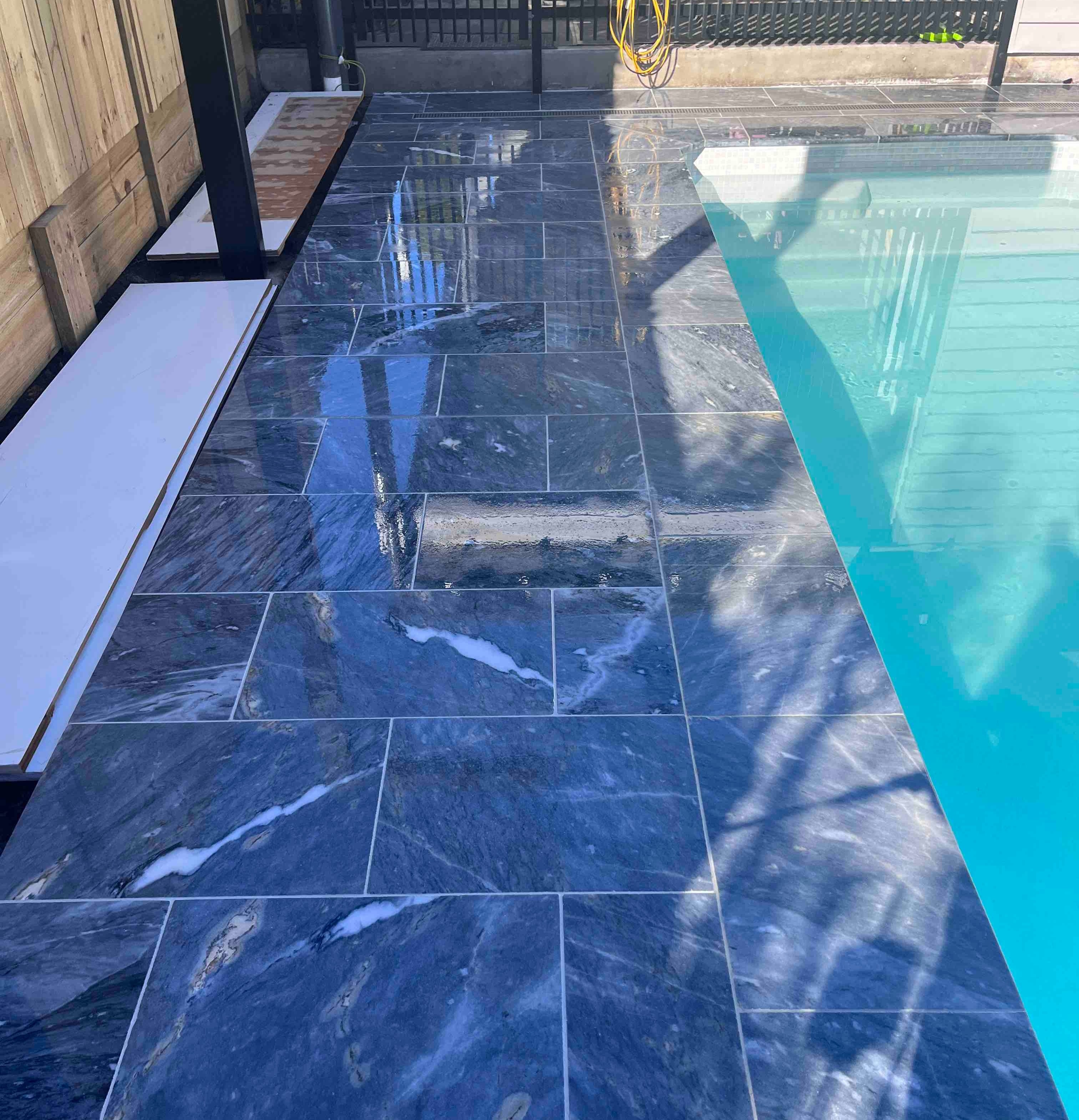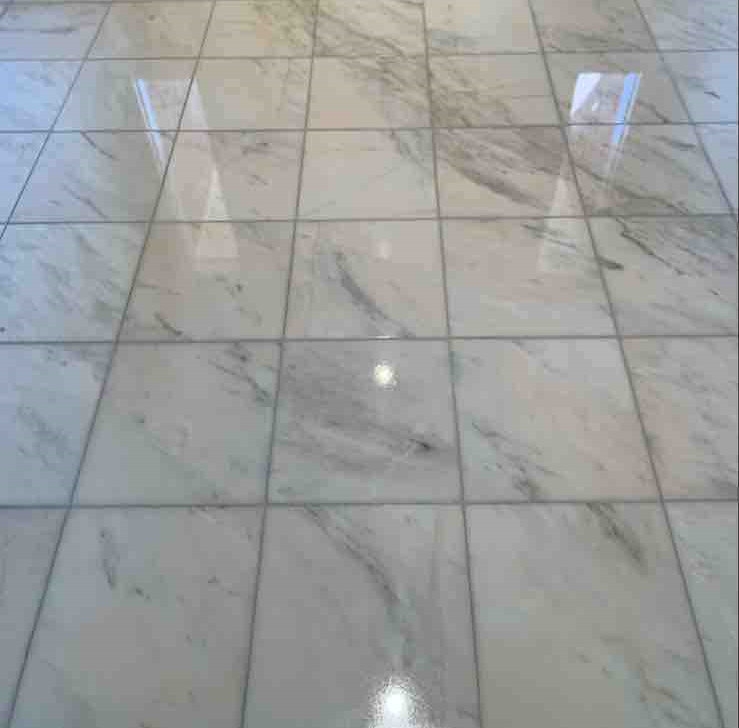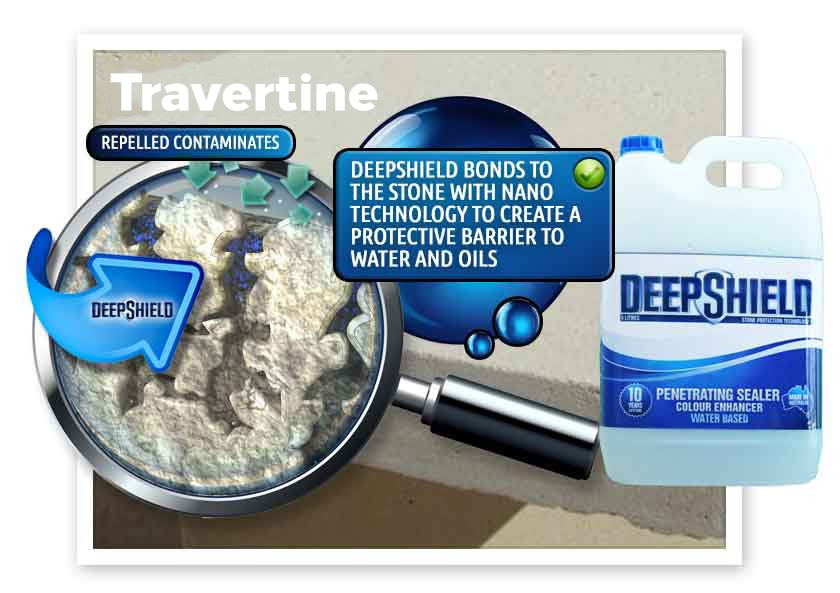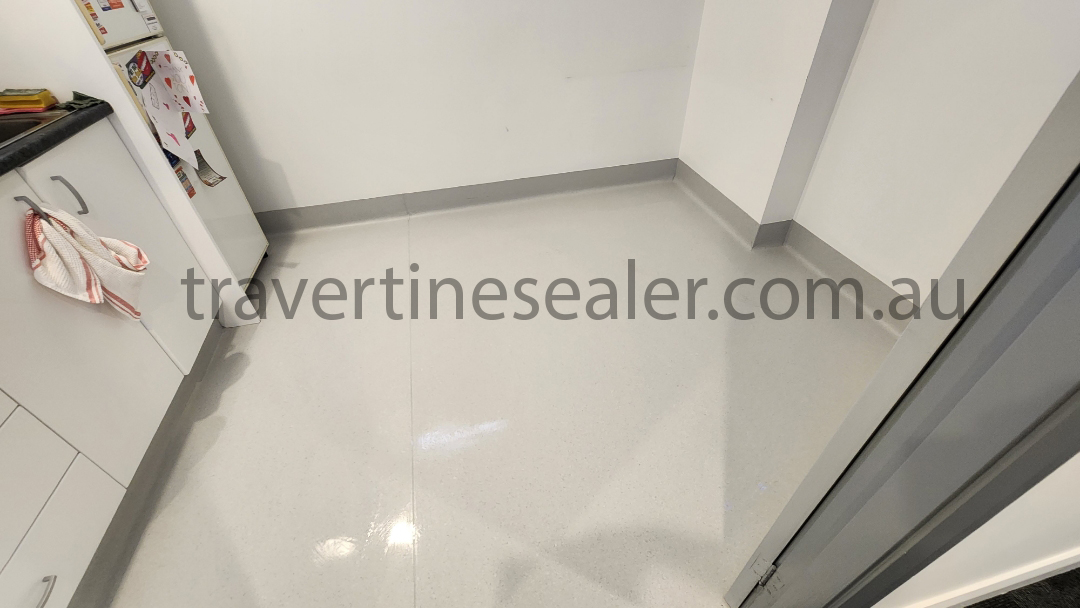Select a reputable company with specialized equipment and expertise to properly seal and maintain your travertine after installation.
Maintain cleanliness of your sealed travertine, promptly wipe up spills, and clean periodically.
Professional cleaning not only eliminates surface dirt but also extracts deeply embedded dirt within the pores of travertine.
Reach out to a professional stone floor maintenance company equipped with the necessary tools and expertise to ensure your valuable surfaces meet your expectations.
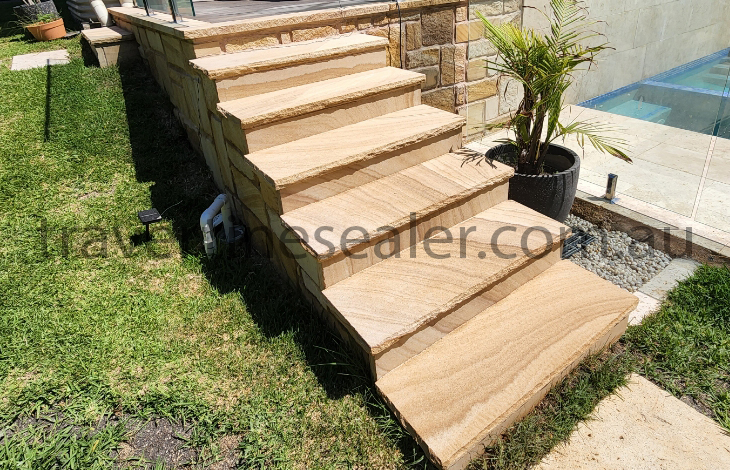
Tile Cleaners and StoneMaster are part of a network of independent Accredited Applicators extensively trained in the proper application of travertine care products. They offer comprehensive services, including thorough cleaning of the travertine area, product application, and post-treatment care.
- Tile Cleaners Australia specializes in tile and grout cleaning, sealing, stripping, resealing, regrouting, grout color sealing, and minor tile repairs, making them Australia's leading tile care provider.
- StoneMaster adopts a diagnostic approach to each unique situation, conducting a full analysis and selecting the best restoration method, followed by maintenance procedures to ensure outstanding results.
It's crucial to thoroughly clean your travertine before sealing to prevent sealing in old stains or embedded dust and debris, which would require stripping and resealing.
Using an unsuitable or low-quality sealer may result in travertine surfaces that don't meet your satisfaction.
